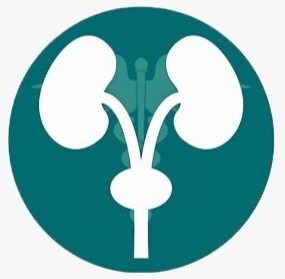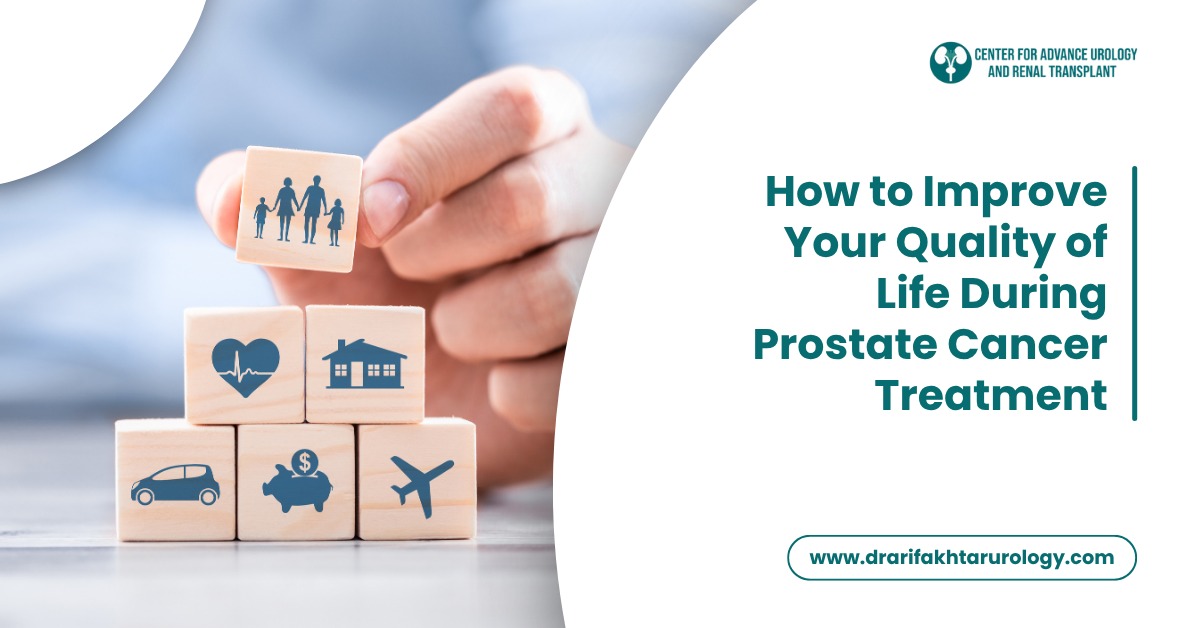Introduction
Prostate cancer treatment can be a challenging journey, both physically and emotionally. While medical treatment is essential for combating the disease, managing the side effects and maintaining a good quality of life is equally important. Living with prostate cancer often involves facing physical, emotional, and social challenges, but with the right strategies, patients can improve their well-being and navigate the treatment process more effectively. This blog will provide essential prostate cancer care tips to help you cope with prostate cancer treatment and enhance your quality of life throughout your recovery.
How to Improve Your Quality of Life During Prostate Cancer Treatment
Prostate cancer treatment typically involves surgery, radiation therapy, hormone therapy, or a combination of these methods. While these treatments target the cancer, they can also cause side effects such as fatigue, pain, and emotional stress. Fortunately, there are several ways to improve life during cancer treatment, focusing on both physical and mental health.
1. Prostate Cancer Recovery Tips: Stay Active and Maintain a Healthy Diet
Physical health plays a crucial role in prostate cancer recovery. Keeping active, even with light exercises, can help reduce fatigue, boost mood, and improve overall well-being during prostate cancer treatment. Here are some tips:
- Exercise regularly: Incorporating gentle physical activities like walking, swimming, or yoga can help maintain muscle strength and flexibility, which is important during treatment.
- Focus on diet and nutrition: A balanced diet rich in vegetables, fruits, lean proteins, and whole grains is essential for supporting your immune system and overall health. Specific foods, such as tomatoes (which contain lycopene), green tea, and cruciferous vegetables, have been suggested to be beneficial during prostate cancer treatment.
- Stay hydrated: Drinking plenty of fluids can help combat the dehydration caused by certain treatments, such as chemotherapy or hormone therapy.
2. Coping with Prostate Cancer Treatment Side Effects
Many men undergoing prostate cancer treatment experience side effects, such as fatigue, incontinence, sexual dysfunction, and hot flashes. Learning how to manage these symptoms is vital for maintaining a good quality of life during prostate cancer treatment:
- Fatigue management: Regular exercise, proper rest, and a healthy diet can help combat cancer-related fatigue. It’s also important to listen to your body and rest when necessary.
- Incontinence management: Pelvic floor exercises (Kegel exercises) can strengthen the muscles controlling urination and help reduce incontinence.
- Sexual health: Talk openly with your healthcare provider about the possibility of sexual dysfunction. Medication, therapy, or lifestyle changes can help address these issues.
- Hormonal therapy side effects: Hormonal treatments can lead to mood swings, hot flashes, and weight gain. Mindfulness practices, stress management techniques, and healthy eating can help manage these symptoms.
3. Mental Health and Prostate Cancer: The Importance of Emotional Support
A healthy lifestyle for prostate cancer patients isn’t just about physical health—mental well-being is just as important. Coping with prostate cancer treatment involves dealing with a range of emotions, from anxiety and depression to frustration and fear.
- Seek emotional support: Speaking with a counsellor, therapist, or joining a support group can help you process your emotions and share your experiences with others going through similar situations.
- Mindfulness and relaxation: Practices such as meditation, deep breathing, and mindfulness can reduce stress and improve mental clarity. These techniques can be especially helpful in managing the emotional impact of cancer treatment.
- Stay connected with loved ones: Support from family and friends is crucial during this time. They can provide emotional comfort and assist with daily tasks, easing some of the physical and mental burdens of treatment.
4. Support for Prostate Cancer Patients: Building a Strong Support System
No one should go through living with prostate cancer alone. Building a robust support system is essential for both physical and emotional well-being.
- Join support groups: Many online and in-person groups offer peer support for prostate cancer patients, where you can share experiences and coping strategies.
- Communicate with your healthcare team: Keep an open line of communication with your doctor or cancer care team. They can guide you through treatment, help manage side effects, and provide emotional support.
- Family and friends: Lean on those who care about you. Let them assist you with daily activities and encourage them to join you at medical appointments or support sessions.
5. Prostate Cancer Prevention and Lifestyle Changes
While prostate cancer prevention is not always possible, making healthy lifestyle changes can reduce the risk of complications and improve quality of life during and after treatment.
- Exercise: Staying active not only helps manage side effects but can also reduce the risk of recurrence.
- Balanced diet: A healthy diet rich in antioxidants, omega-3 fatty acids, and plant-based foods can promote recovery and reduce inflammation.
- Stop smoking: If you smoke, quitting can help improve your overall health and reduce complications associated with cancer treatment.
- Limit alcohol: Excessive alcohol consumption can interfere with your immune system and negatively affect treatment outcomes.
Conclusion
Improving your quality of life during prostate cancer treatment involves a balanced approach to physical health, mental well-being, and emotional support. By adopting prostate cancer care tips such as staying active, managing side effects, seeking emotional support, and maintaining a healthy lifestyle, you can enhance your overall well-being throughout the treatment process. Remember, it’s essential to stay connected with your healthcare team and loved ones as you navigate this journey. With the right strategies, you can live a fulfilling and empowered life while managing prostate cancer.




